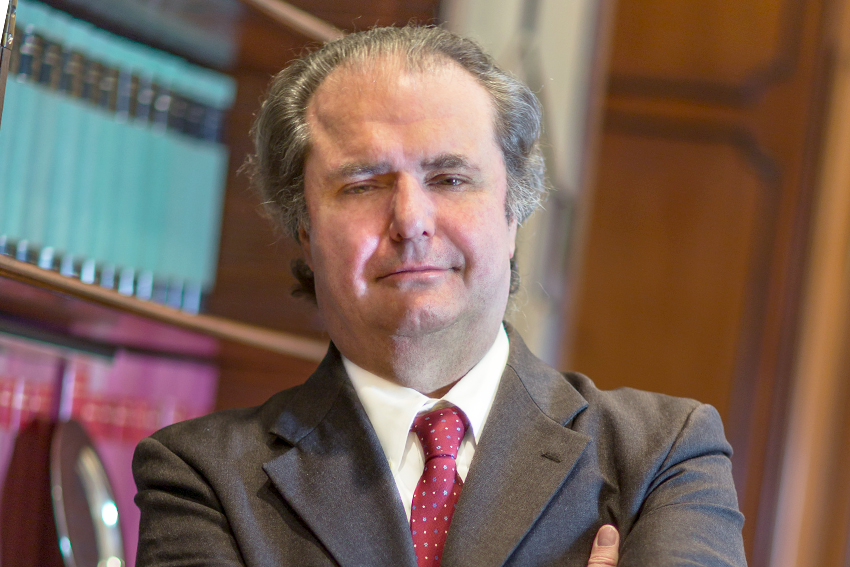Chairman of d’Amico Società di Navigazione Paolo d’Amico explains some of the factors that made 2015 a ‘fantastic’ year, and 2016 to be likewise, for his and other international shipping companies, as well as the emphasis on training, safety and environmental balance at d’Amico.

What is your personal view of increasing trends in the global shipping market, and what would you identify as the markets with the highest growth potential for d’Amico?
We have two factors, which have impacted the industry in the last 24 months. On the one hand, you had the reduction of the oil barrel price, which went from way over $100 down to below $30 in January 2016. On the other hand, we have had China’s slowdown; and China has been [good] for shipping in general, but I would say for the dry cargo space in particular the main driver of growth in recent years. These two opposites have hit the industry in the same period with very different impacts.
The barrel price going down has pushed the oil industry as a whole to start taking the opportunity to buy oil and building huge stockpiles of it worldwide. This volume of crude being moved from A to B, and then refined and moved to C has created a far greater demand for tankers than we have ever seen.
Remember that our planet is by two-thirds covered by sea, and in every purchase there is a shipment, so it really is the biggest infrastructure that we have on a global scale. So I have to say that increase in movement has meant that we had a fantastic 2015.
On the dry side, China is reducing its production of steel – which is key to the shipping industry as to make steel, the factory needs imports of one ton of iron ore, three tons of coal, and then exports the final product. So this aspect of the business saw a slow down.
Turning to the Ten-T corridors and the rapidly growing links between the MENA region and Europe, how do these affect d’Amico? What does the Mediterranean represent for d’Amico?
Certainly the potential is very important. The point is that this government is proactive. They really try to do things. In the past we had a new government every seven months, so it was very difficult to do actual planning.
Yes, Italy can play a fantastic role in this infrastructure between south and north, and as a gateway to Europe. Certainly we have to increase port efficiency so that is what the government is focusing on. For d’Amico, of course, whatever is seaborne is an opportunity for business. We have been in many trades, including containers, and if an opportunity is there, it can be an element of growth.
Could you please share a hint about the results and main highlights of d’Amico for 2015?
d’Amico International Shipping is only a piece of the d’Amico Group because it takes care only of the product tanker trade. The d’Amico Group as a whole is currently investing around $1.3 billion in renewing both the product tanker and the dry cargo fleet. The results of 2015 are good. I cannot say more on that at the moment.
What are the measures that d’Amico undertakes in order to protect the environment and promote sustainability in this sector?
Shipping is probably the industry which has been more proactive on environmental issues. We do not compromise when it comes to environmental concern. We aspire to prevent any human injury and to avoid damage to the environment; we pursue a policy of zero incidents, and zero oil spills at sea. We ensure that with continual monitoring, scrupulous inspections, a detailed analysis of the collected data, and a rapid implementation of corrective actions of improvement have enabled us to always be above the standards of compliance. We are therefore extremely tough on training.
Training is certainly the most important thing for us and we are enforcing it at a standard much higher than required. For instance, we support the Istituto Tecnico Superiore, Fondazione G. Caboto, which is an upper training school in Gaeta. There, we are licensing something like 30 to 40 cadets every year.
Not only do we take care of the training side, but we take care also of their job placement. They need to be the most educated in safety, environmental issues and security because this is a dangerous industry, especially on the product tankers side, and our clients are the biggest oil and gas giants in the world, like Exxon, Total and Chevron, and this is what they expect from us. So, on this respect we are very tough.
What would you say are the opportunities coming from the potential trade liberalization of the TTIP for the shipping sector and for your own company in particular?
Of course an increase in trade and the subsequent wealth creation on both sides of the Atlantic would be an improvement. We will certainly see an increase in the demand of ships, and to meet this demand for ships, d’Amico will be there.
0 COMMENTS